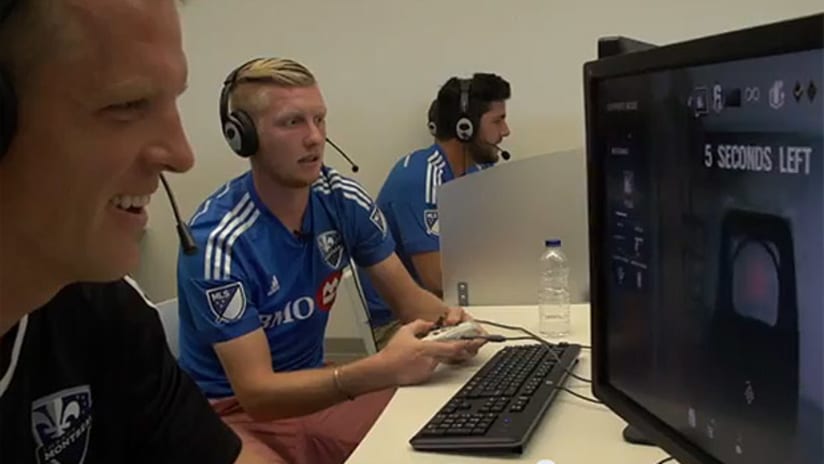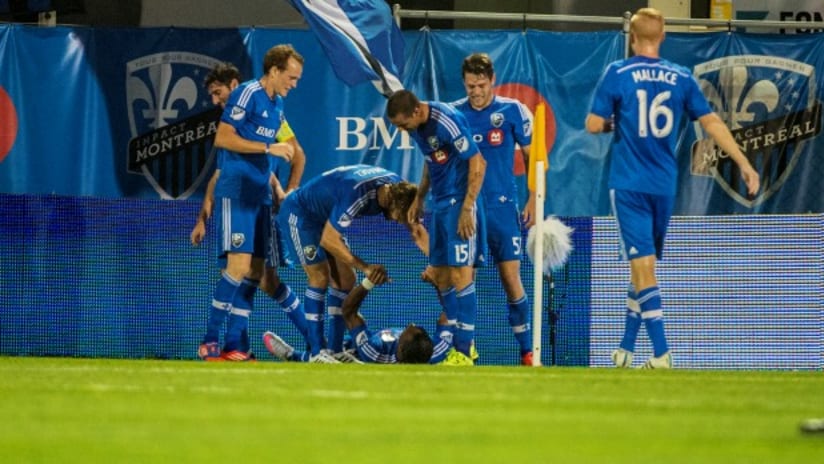Both teams settled for a 0-0 tie April 23, in Miami, but the Brazilian star was not part of the line-up.
There is no doubt that the visit of world soccer’s second-best ever goal-scorer will be something special, but Impact players don’t intend to roll out the red carpet for him, especially on the field. Once the game will be under way, Nick De Santis’ men will be adopting the same approach they usually do when facing teams with star power — no matter which position they play.
“We can’t say that we change our whole system, even in this type of situation,” says defender Gabriel Gervais who was voted to the USL D1 All-League Teams over the last four seasons. “When you’re facing a particularly talented player, you pay attention to him when he comes into a dangerous area. But you can’t let yourself be distracted by his mere presence, or else he’ll already have an advantage. It’s the same thing when I’m with the national team.”
The strategy has visibly paid off since last year the Impact boasted the best defence in the league, allowing only 15 goals.
“My attitude is that any player can shoot the ball well if you give him time to do something with it,” says Impact goalkeeper Greg Sutton, who has registered three shutouts in four starts this season. “So you have to make sure he doesn’t get much time, that he rushes his shot. Of course, you keep an eye on particular players, and you notice which player has the ball — a guy like Romario can do anything when he’s front of the net — but you have to be prepared all the time.”
Midfielder Patrick Leduc, who scored his first goal of the season last Sunday, against the Minnesota Thunder, agrees.
“The idea is to give the player as little time as possible to make his move, to try and force him to rush his play.” explains Leduc. “When the opponent sends the ball to a player that’s between me and a defender, I try to close the gap as quickly as possible.”
Even the forwards have a role to play.
“You have to apply pressure, try to cut down passes towards the player in question,” says Mauro Biello. “You have to force a defender who has the ball to pass it on the team’s weak side, instead of on the side with the stronger player.”
“It’s a source of motivation,” sums up Leduc when talking about the challenge of facing an above-average opponent. “Stopping that kind of player is a matter of pride. When we do stop him, on one hand we realize that after all he’s human, and on the other hand, that we did things the right way on the field.”
-30-
Focus


